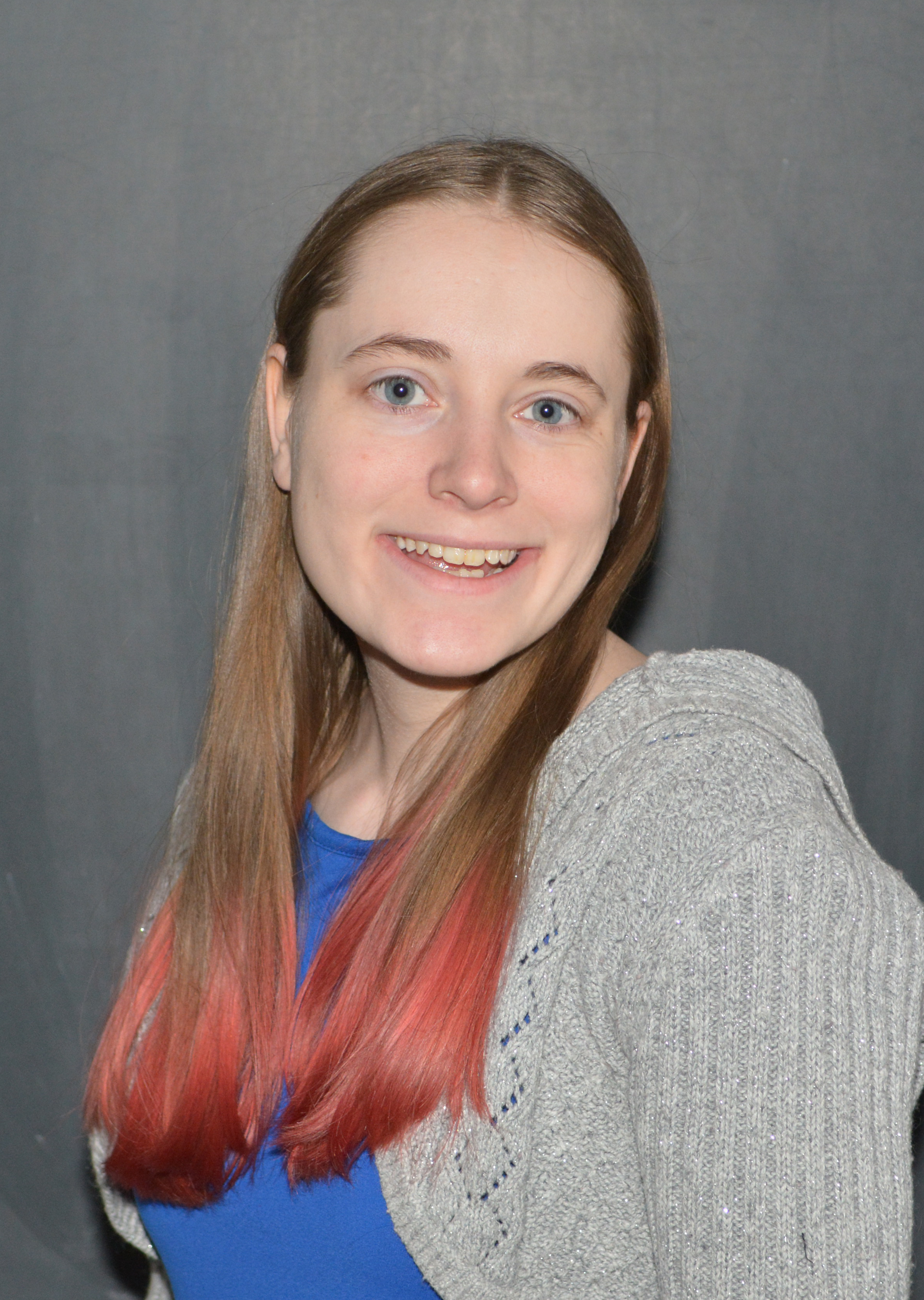Article
 Amanda Weiss is a fifth-year Ph.D. student studying molecular and integrative physiology.Amanda Weiss is a fifth-year Ph.D. student studying molecular and integrative physiology. At the Beckman Institute, she conducts research to determine how and why the permeability of the blood-brain interface changes in response to circadian rhythms. She is also finishing a project where she grew organoids, organ-like structures grown from stem cells in a lab. She collaborates with chemistry professor Jonathan Sweedler's lab as well as Martha Gillette, an Alumni Professor of cell and developmental biology, and Hyunjoon Kong, a professor of chemical and biomolecular engineering.
Amanda Weiss is a fifth-year Ph.D. student studying molecular and integrative physiology.Amanda Weiss is a fifth-year Ph.D. student studying molecular and integrative physiology. At the Beckman Institute, she conducts research to determine how and why the permeability of the blood-brain interface changes in response to circadian rhythms. She is also finishing a project where she grew organoids, organ-like structures grown from stem cells in a lab. She collaborates with chemistry professor Jonathan Sweedler's lab as well as Martha Gillette, an Alumni Professor of cell and developmental biology, and Hyunjoon Kong, a professor of chemical and biomolecular engineering.
Hometown: Mahopac, N.Y.
When did you first take an interest in your field?
I discovered a love of neuroscience when I realized that seemingly minor components of our brains could drastically influence who we are. I also became enamored with using neuroscience to understand myself, other people, and what contributes to neurological differences. Now I use my understanding of neuroscience and physiology in daily life to improve my mental health, physical health, and productivity.
What kind of research are you working on?
I am working on understanding how the permeability of the blood-brain interface changes as a result of circadian rhythms. I’ve shown that the permeability of endothelial cells (the main cell type in blood vessels) has circadian rhythmicity. Since these experiments were performed in vitro, we know this effect is caused by circadian rhythms and not by sleeping patterns. I have been growing motor neuron organoids. These are masses of motor (movement) neurons and glia grown from stem cells in vitro. Organoids offer a unique potential for many different types of experiments. I have been providing the organoids to Shannon Murphy in Dr. Jonathan Sweedler’s lab so that she can determine how their neurotransmitter levels change over time. She has also been comparing these levels to that of mouse spinal cords over time. Shannon has been using capillary-electrophoresis-mass spectrometry (which is advantageous for its ability to handle small volume samples such as organoids) to measure neurotransmitters in organoids and spinal cords. To our knowledge, this is the first study to use this technique for analyzing organoids.
Beckman’s mission is to build a better world. How does your research make our world better?
Fluctuations in the permeability of the blood-brain interface are important because they can influence susceptibility to neurological diseases, as well as the effectiveness of drug administration. I think it’s also useful for people to know about the importance of circadian rhythms because this can help us understand the health benefits of keeping sleep schedules that are more in sync with them. Knowledge of circadian rhythms can also help people to figure out the best time of day to perform different biological tasks, like taking medication or exercising. Through the organoid project, we have provided comparisons between motor neuron organoids and spinal cords. These types of comparisons are important since organoids are often used to model organs and other body parts. We have also shown that a highly sensitive type of mass spectrometry can be performed on organoids. I think it’s also beneficial for people to see collaborative research between different labs because not everyone realizes that this is a possibility.
How has your affiliation with the Beckman Institute helped you?
The Beckman Institute has made it easier for me to collaborate with the Sweedler lab. It’s also been an enjoyable place to work. I always feel a little bit better the moment I walk through the door. The equipment is state-of-the-art, and the Beckman Institute is an environment where a growth mindset is encouraged.
Describe a transformative moment or experience you have had at Beckman.
My favorite moment was when I realized that the organoids were starting to grow. It was a challenge to get them to grow, and I was very excited to be performing research on them.
Tell us about your post-university plans!
I can see myself teaching, doing research, or some combination of both.
What do you like to do outside of the classroom or lab?
I’m a volunteer firefighter at Monticello Fire and Rescue. It’s exciting, fulfilling, and challenging. I also play Dungeons and Dragons, and I enjoy hiking, bike-riding, spending time with friends, writing, and singing.
Speed Round
Favorite local restaurant: Bangkok Thai
Top three songs at the moment: Mainly, I listen to the full soundtrack to “Dr. Horrible’s Sing-Along Blog.” My favorite song on that is “My Eyes.” Another song I enjoy is “Avatar Country” by Avatar (which is a blend of metal and country). Lastly, “Monster Mash” by Bobby “Boris” Pickett.
Summer plans: Visit my parents, who retired in the Las Vegas area
Favorite warm-weather activity: Hiking
Currently streaming/watching: Cracow Monsters
Beckman Institute for Advanced Science and Technology